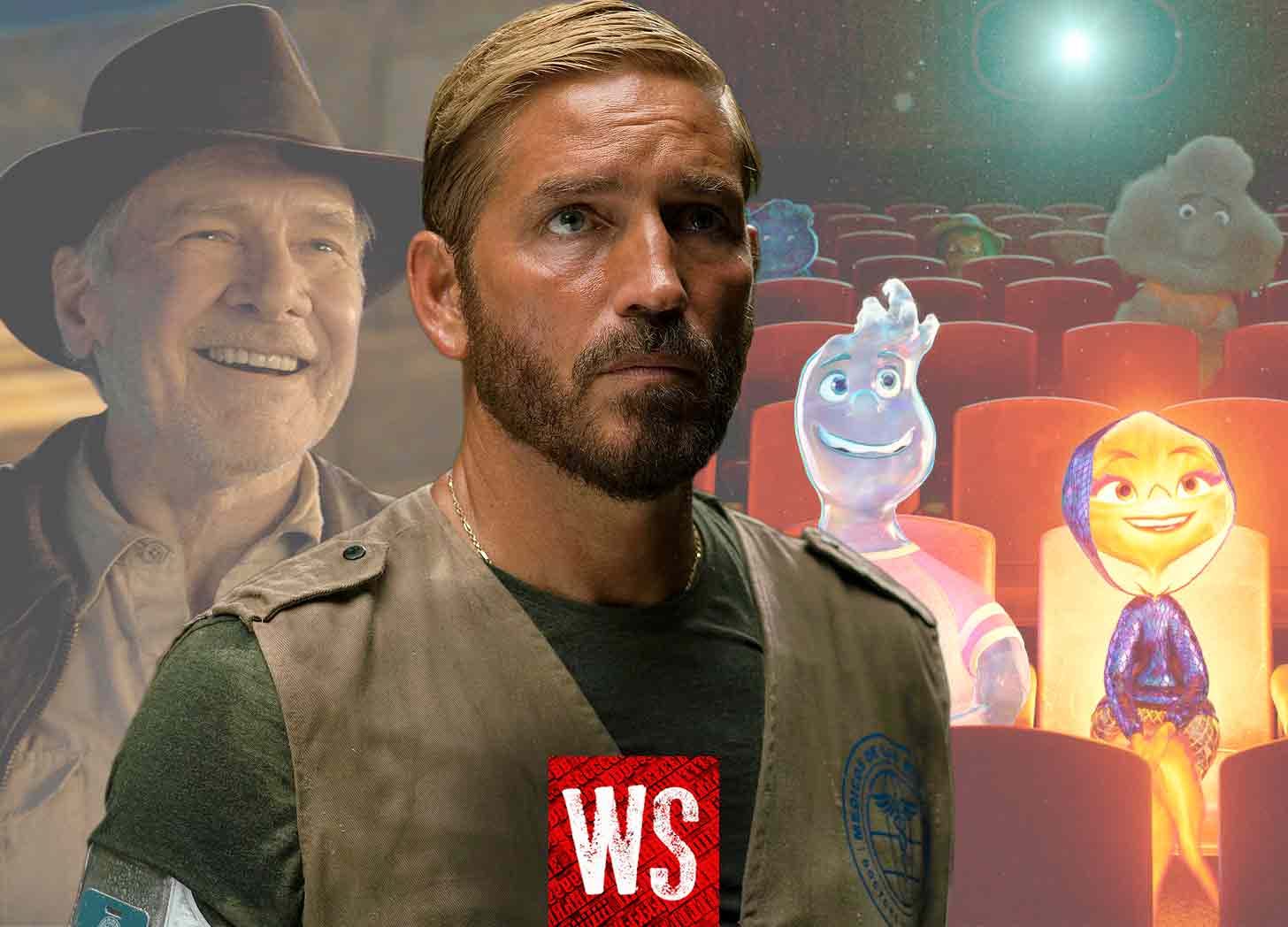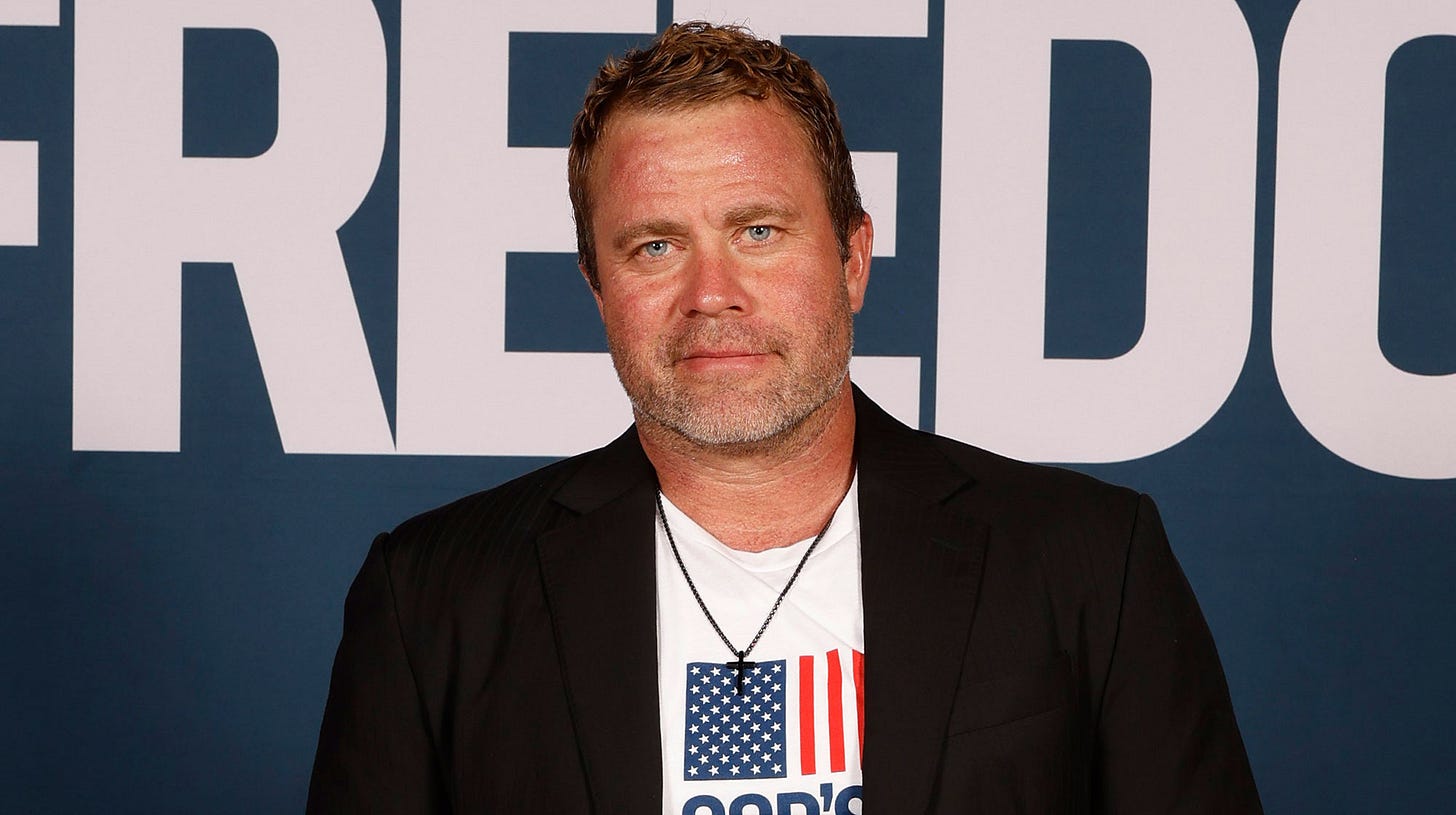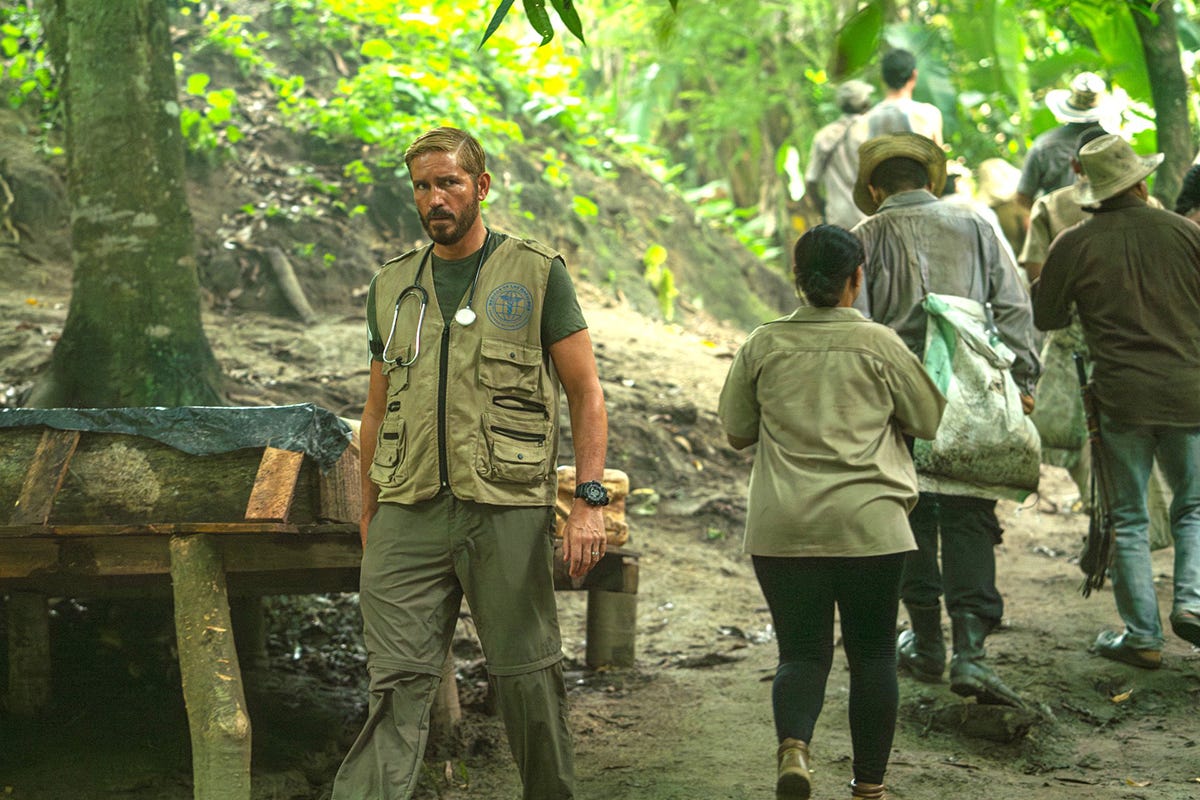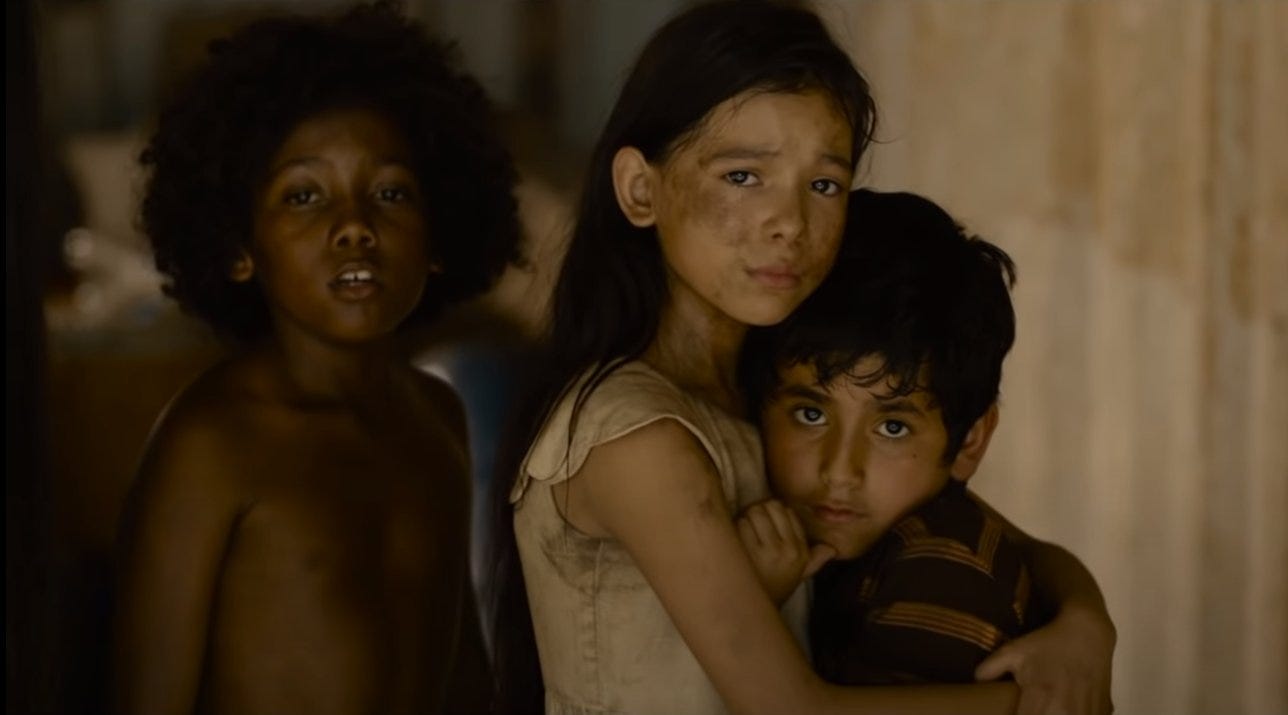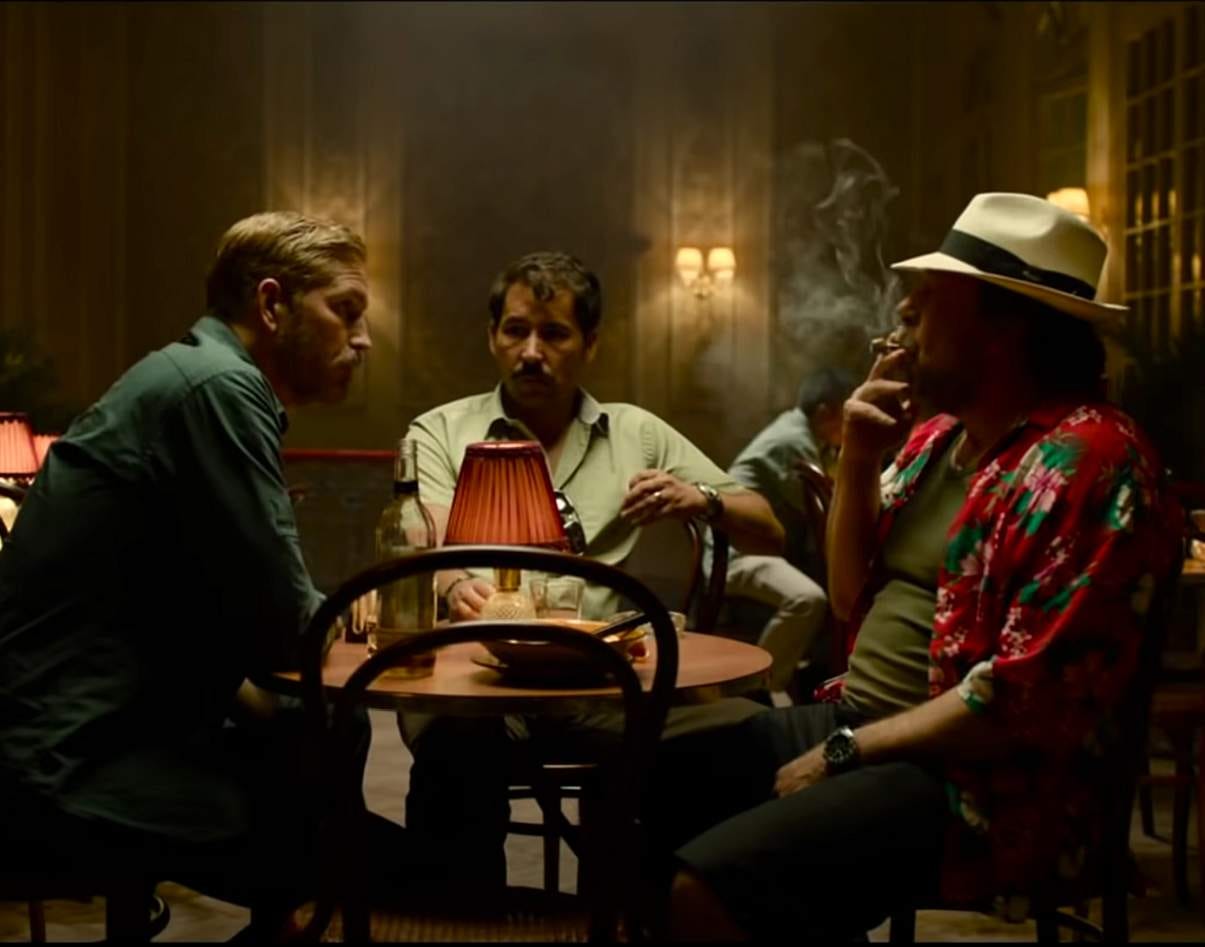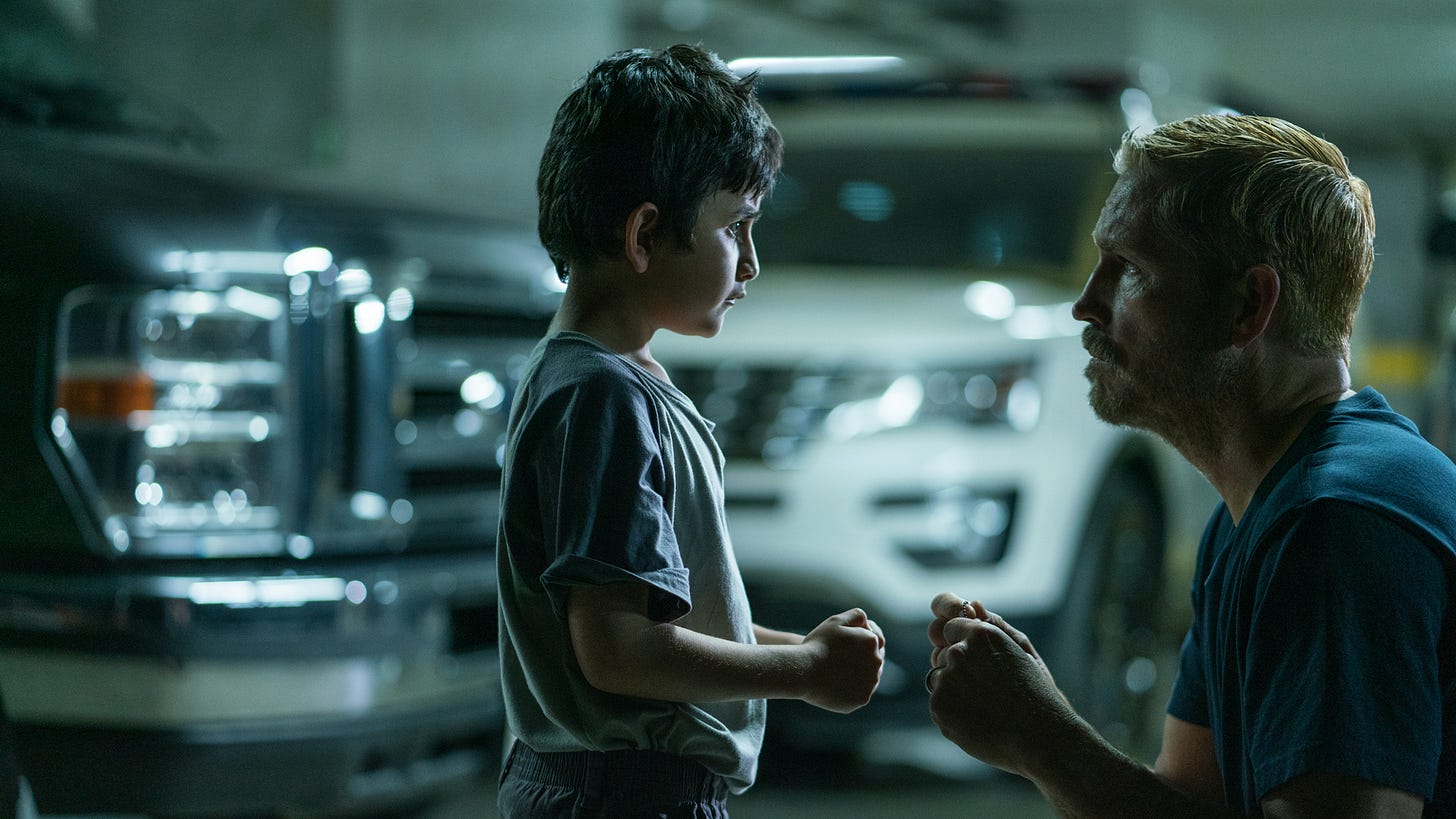Sound of Box Office: Why the faith-based film Sound of Freedom is gaining steam in theaters
If you go to the theater this week you can choose from any number of films. You can adventure with Indiana Jones again. You can swing with a bunch of animated Spider-People. You can watch Transformers, you can watch The Flash, you can watch a Pixar movie. Hell, you can watch Jennifer Lawrence get in a fully nude beach brawl.
You can also see a movie about child sex trafficking.
Yup, it’s quite the summer blockbuster line-up until you reach Sound of Freedom, a movie that seemed to come out of nowhere and is not clogging your feed. It beat out Indiana Jones and the Dial of Destiny on the 4th of July and continues to climb the charts and the airwaves, leaving many pundits stunned.
But, is it really that shocking?
The Rise of Faith-Based Films
Sound of Freedom was financed with both crowdfunding and independent financing through Angel Studios, the faith-based studio that originally began as VidAngel, a controversial filtering service that filtered out explicit material for viewers, particularly those of Christian or Mormon faith. After being sued for copyright by multiple Hollywood studios, the owners eventually settled and sold the service, choosing to create their own content instead of censoring stuff already out there. Through donors and crowdfunding, Angel Studios was born, joining the chorus of faith-based film studios that continue to grow (and impress) within their own little corner of Hollywood.
Movies like Heaven is for Real, War Room, I Can Only Imagine, Soul Surfer, Son of God, and the one that seemed to kick it all off, Mel Gibson’s The Passion of the Christ, itself an independent production (and second-highest grossing of all time, just behind Peter Jackson’s The Lord of the Rings trilogy) have left an indelible mark on the industry, showing a continued rise in interest for the genre, which is showing no signs of slowing down.
Tim Ballard and the Reality of Child Trafficking
Directed by Alejandro Monteverde (2015’s Little Boy) with Monteverde and Rod Barr serving as writers, Sound of Freedom stars The Passion of the Christ’s Jim Caviezel as real-life anti-human trafficking organizer, Tim Ballard. A former federal agent with the U.S. Department of Homeland Security's Human Trafficking division, Ballard left his government position and founded Operation Underground Railroad, a non-profit that works with law enforcement all over the world to stop human trafficking.
Ballard is a controversial figure, a Mormon who has taken it upon himself (perhaps ordained by God in his perspective) to get more involved in stopping the modern slave trade of human trafficking. It’s a noble endeavor, but not without its flaws and criticisms, many of them fair and valid. One of the bigger issues is that while Ballard may break up a trafficking group and rescue a group of kids, the question of their well-being after being rescued is another matter and not one that OUR is specifically designed for. The children are frequently returned to their homes and families, while other times held and cycled through endless government agencies before being released back into the wild, where many often return to being trafficked.
It’s a bigger problem that calls into the complexities of “saving” children from these situations that are taking place mostly in third-world countries, seeped in poverty, where a blind eye is turned on the child trafficking industry out of fear, corruption or lack of resources. So, the question becomes, is it better to do nothing? Most would say no. If ten kids being rescued has only five of them returned to normal or better lives, while the other five suffer the same or worse fates, is that not still five saved that otherwise wouldn’t have been? It’s a tricky and morally confounding question. The answers aren’t as easy as armchair quarterbacking the situation from your home in middle America either. It’s because of that complexity that Sound of Freedom becomes so appealing.
As a film, it attempts to answer some of those confounding questions, even if its more unflinchingly dedicated to the cause, regardless of consequences. Breaking the rules and saving kids is the number one priority. The chips fall where they fall after that, even if it’s far more nuanced in a case-by-case basis. One thing to keep in mind is that not every child has the same set of circumstances, something that’s frequently overlooked.
Ballard and his organization were investigated for nearly three years by Utah’s Davis County Attorney Troy Rawlings, which resulted in their exoneration when the case was closed without any charges or ramifications. Ballard remains committed to the organization, which still stands as a controversial one, even while the intentions are noble.
Sound of Freedom and OUR - The Controversy Explained
So, why all the detail and background on this subject? Well, for one, anything claiming to be a true story deserves to be scrutinized right off the bat. Personally, I don’t like to be misled, and if a “based on a true story” film does it’s job well, then I’ll be Googling and researching the topic the second I exit the theater. Secondly, it’s good to know what you’re walking into sometimes. I know that some folks just want to be entertained for a few hours, but many others want to dig deeper. I respect both sides of that coin, but I definitely fall into the “dig deeper” category.
Angel Studios does a pretty decent job of separating fact from fiction on their website for the film, stipulating the realities and differences of what’s portrayed vs. what actually happened, and I actually applaud their transparency. It’s a rare show for any entertainment group. Usually they want you in the dark and leave things purposefully ambiguous. Of course, you should ALWAYS do your own due diligence and research the story from a number of sources (it’s amazing I should even have to say this), as you’ll find the usual sources playing ping pong with the facts, always keeping the ball in their court.
Vice News has had a field day with Ballard, attempting to tackle his credibility and OUR’s mission (don’t worry, they haven’t reported on Hunter Biden for a year now), and you can find a bevy of reviews from left-leaning sites that deep dive into every point of villification they can find, from The Guardian to Jezebel (which actually leaves it with a positive review despite the attempt to pan it), while more valid sources, such as Variety, give it the nuanced and balanced review.
The other “controversy” over Sound of Freedom is the pay it forward, “free ticket” experiment that Angel Studios is running. People that wish to support the film can purchase tickets that can then be claimed by moviegoers for free via just about any online ticket forum after getting a code at Angel Studios website. The controversy is that the tickets are just being bought up and going unclaimed, which in turn is falsely making Sound of Freedom a box office success. Sure, that makes perfect sense. An independent studio that could barely afford to make the film are now buying up tickets themselves to make it a success. Seems legit.
The problem is that doing that would only buy you a few days, maybe, of being a success. Not even Disney can afford to blanket showings with fake purchases (a conspiracy that was abound when Captain Marvel was released) for any extended amount of time. In the end, audiences will decide what is a success and what isn’t. If it was up to Hollywood, then EVERYTHING would be a hit, and if you think that’s true then The Flash would like to have a word with you.
In the end, the best way to find out is for yourself. And, with a free ticket, that’s a pretty good incentive.
A Good Movie or QAnon Propoganda?
I’ve seen multiple people (who haven’t seen the film) comment that Sound of Freedom is Q’Anon/Religious/Right-Wing Propoganda, which couldn’t be farther from the truth. Aside from the mention of God twice in the film, Sound of Freedom is devoid of politics or conspiracy theories. If anything, it’s exceptionally earnest and perhaps a bit naive in displaying the unrelenting pursuit of Ballard’s mission. In fact, the film goes out of its way to portray the subject matter as openly and honestly as possible, somehow finding a balance when showing how absolutely horrific the scenario is.
Caviezel exudes a quiet, meditative intensity, sporting the blonde locks that Ballard is known for, while playing him as a soft-spoken, unwavering character with a subdued naivette. He’s not a superhero and he has much to learn in the course of his mission, which escalates when he decides that working for the US Government has his hands tied up in too much red tape. What begins as a gig in taking down pedophiles, child-porn peddlers, and men who frequent other countries to take part in their sick fantasies, turns into an obsession to help save as many kids as he can.
It’s the kind of crusade that is common in Christian religious organizations, albeit a very specific one and not one that’s meant to “save” the kids in a religious sense. “God’s children are not for sale,” says Caviezel at one point, which is his “I’ll be back” line in the film. Cheesy? Yes. Effective? Also, yes.
Mira Sorvino stars as Ballard’s wife and her role is pretty pared down to the point of “housewife”, even as her influence on Ballard is exceptional. Her support is a driving factor for what he chooses to do, which is to immerse himself in the underground world of child sex slaves, posing as a customer looking to drum up big parties for multiple clientele that want to take part in this awful, dark world. Along the way, Ballard teams up with a former Cartel man named Vampiro, played by Bill Camp, who adds a tremendous amount of levity to the film. He’s the supporting actor the film needed and it’s all the better for his presence. A former cartel man, Vampiro now pretends to be in the child trade, but ultimately buys and frees them instead.
What unfolds is a disturbing and shocking journey into the heart of darkness that is child sex slave trafficking. If you’re a parent, Sound of Freedom will no doubt jolt you to attention and grip your heartstrings. You could call it manipulative, but the truth has a way of feeling that way. The good thing is that it’s not exploitative, which is a danger I’d worry about if Hollywood got its hands on this material. Mainstream movies have only tap-danced around this worldwide tragedy, most recently with Rambo: Last Blood of all films.
Performance-wise, Sound of Freedom is solid as a rock. Caviezel sells the idealogical Ballard perfectly, and even shows some humor where it can be worked in, while Camp provides a kind of mentor-like compass to the proceedings. The film really shines with the two lead kids in the film, a brother/sister duo played by Lucás Ávila and Cristal Aparicio, who are kidnapped, separated, and sold into slavery. Their journey serves as a focal point for the broader trade operation and it will make many audiences sick to their stomach to see how it unfolds. The actors, for their part, are phenomenal. Child actors are always a tough sell, especially for something as intense as this, but both of them provide the most realistic portrayal I could imagine given the scope of this film. Without their performance, the film simply would not be as good as it is.
The area where Sound of Freedom lags is in bridging the story together. The scenes themselves work well, but the pacing is jagged, feeling like far too many scenes were cut that were needed to piece together something a little more well built. We needed to know more about who Ballard is, why he makes the choices he makes, and the struggle to balance it all. He makes the seemingly selfless choice to go on this crusade, while a wife and six kids wait for him at home, seemingly unaffected and understanding. I highly doubt that it’s been that simple in the Ballard household and some of that drama and conflict would’ve served tremendously in getting to know the deeper motives behind the protagonist.
There are suggestions that the villains of the film are cartoonish stereotypes, but I’m not sure what kind of nuance you want with these people. While they could have been developed a tad deeper, I was surprised to find how terrifying and realistic they seemed. This wasn’t a bunch of henchmen akin to an 80s action movie, but rather people that looked and felt dangerous, rather than just canon fodder for the hero. If you ran into these guys in a South American jungle you’d rightfully be afraid for your life.
Aesthetically, Sound of Freedom truly shines. Made for a budget of $14 million, this is a film that looks slick, sharp, and gritty. The reason? None of it was shot on green screen, but rather almost all on location in Cartagena, Columbia. And it shows. Frequently, as scenes changed, I was almost mesmerized that I was indeed in a location, not a set. It feels lived in, real, urgent, and even dangerous. Watching Indiana Jones V, I felt like I was at a theme park and never once felt any sense of danger, as it was all CGI and movie set safe. For Sound of Freedom, I felt like I needed a shower by the end, and not just from the ugly realities of the content.
Where Sound of Freedom excels is in making a viable thriller with a complex story under the backdrop of real-world events, filled with characters that are interesting, compelling, and some of them downright evil. It also appeals to our better nature, as humans, shining a light on an oft-ignored tragedy that’s taking place on a daily basis. If nothing else, Sound of Freedom is a film that has the juevos to tell a story that everyone else is ignoring.
Although Sound of Freedom greatly succeeds in being an absolutely frightening, inspiring, and moving cautionary tale about real-world events, it could use the polish of more established filmmakers. That’s not to diminish the work done by Monteverde, who does a great job with what he has, but one has to wonder what someone like Denis Villeneuve, Alfonso Cuarón, or any number of filmmakers who can handle deeper subject matter could put forth in this genre.
The last thing we need is something exploitative, which Sound of Freedom thankfully avoids, while still showcasing the absolute horror of it all. A bigger budget and more experienced pros could certainly pick up the pacing where it’s needed and flesh out the characters, but in the end this is Angel Studios’ baby and they have a very certain way they want things done, which I can respect, seeing as it’s no different with Disney or WB, etc.
By the time Sound of Freedom ends, the emotional wallop of the story hits you hard. While this particular story ends on an inspiring note, the fact is that it doesn’t always end up that way, and I think that showing the good, the bad, and the ugly would make for a more immersive film. As the credits roll you’re prompted with a special message countdown, which is Jim Caviezel talking about how the film was made and how important it is for people to see it in the fight against child sex trafficking. At one point a QR code is put onscreen for you to scan and take part in the pay it forward campaign. Even Caviezel admits that it’s a weird thing, but a necessary one in order to share the message of the film.
While some may see that as some kind of shameless grab at attention, I can only say: And? Are any of the big studios any different? The ones holding all the cards like to pretend they’re above everything else, but an independent film trying to get asses in seats and maybe, just maybe, get them to take notice of a worldwide crisis isn’t exactly a scam. It’s just a different way of doing things and guess what? It’s working.
Leaving the theater and reviewing what I just saw, the weirdest feeling came over me, which is that, even though I had no intention of seeing it, Sound of Freedom is absolutely one of the best movies I’ve seen this year. It tackles a subject no one else is tackling and does so with grace, balance, and care, while also not shying away from the horrors of it all. When compared to the lackluster films I’ve seen so far, including Indy V, Fast X, Ant-Man and The Wasp: Quantumania, and Transformers: Rise of The Beasts, Sound of Freedom is by far a superior film.
The Secret Formula Behind The Film’s Success (So Far)
Now, the big question to all of that is the most important one: WHY? Why is this little faith-based thriller better than all of those other films and why are so many people going to see it? Are they all just right-wing religious crackpots looking for some propaganda to entertain them?
The truth is that people are going to see it because people want to see good stories. They want to see human stories. They want to see stories they can relate to, whether they’re fantasy or fiction. Hollywood has crashed enough cars, transformed enough robots, cracked open enough multiverses, and put the shock pads on enough dead franchises. People are tired. People are hungry and they’re going to get in line for the stuff that feeds and nourishes them, as humans and as audiences.
This is why Across The Spider-Verse is such a runaway hit. It’s creative, intuitive, and it taps into the human drama that we can relate to, even with hundreds of Spider-People running around. Hollywood can only distract us so long with their brand of soulless big-budget bullshit. Eventually, we need to fill our bellies with something of substance, and the box office is going to reflect that, one Sound of Freedom at a time.
Personally, I see the success of something like Sound of Freedom as a small beacon of hope for more diverse, thought-provoking, and ballsy films to still eek their way into an over-crowded big-budget theatrical world, giving audiences far more to choose from than the latest superhero slugfest, franchise revamp, or mindless animated drivel. At this point, I’ll take whatever we can get and, in the least, I’m happy to see the effort still being made to fight the good fight for the little guy.





